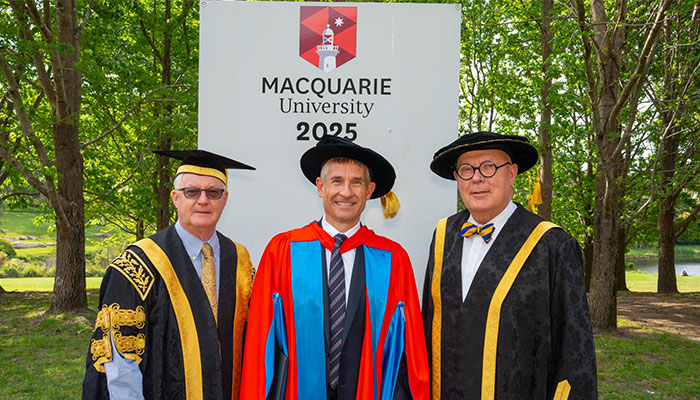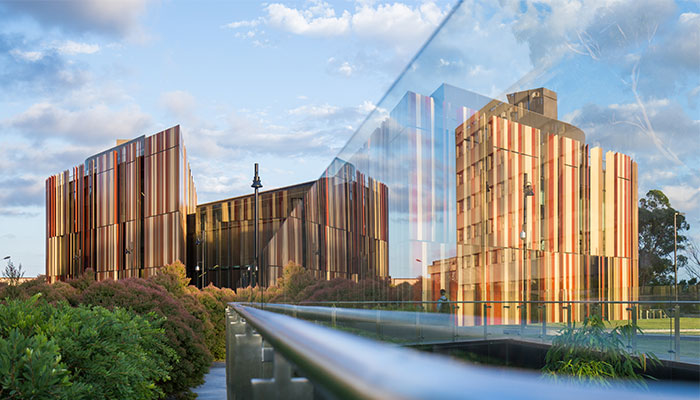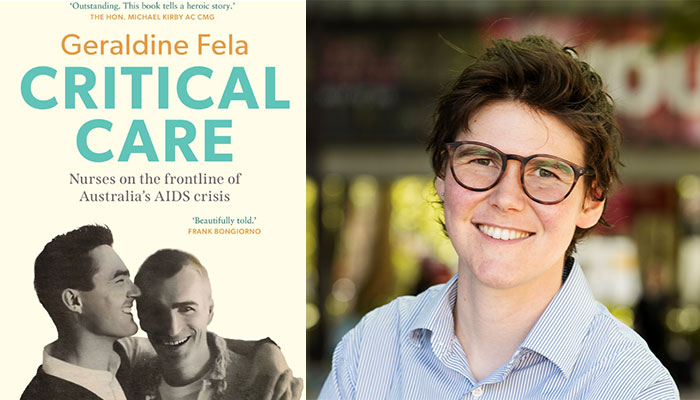PACE stands for Professional and Community Engagement which provides Macquarie University students with the chance to contribute their academic learning, enthusiasm and fresh perspective to the professional workplace. PACE is a key component of the University’s strategic direction emphasising the University’s commitment to excellence in research, learning and teaching and community engagement. Work Integrated Learning is at the forefront of the PACE initiative and is achieved through internships and ‘on-campus experiences’. On-campus experiences involve PACE Industry Partners providing guest lectures and proposing a current real-world problem the industry is facing for students to brainstorm, research and solve in practical and creative ways.
ECON381 - Current Issues in Economics is the most recent Faculty of Business and Economics’ on-campus PACE unit to hit the ground running. Convened by Dr Andrea Chareunsy and assisted by Paul Crosby, this third year PACE unit provides a platform for students to exercise the knowledge and skills they have learned in previous units, requiring students to complete a major research project that deals with issues of economics. The group work engages students in the challenges of interpersonal communication, task allocation, co-ordination and control. By the end of the unit, students gain a sound understanding of how to research and analyse a business from an economics perspective as well as contextualise their graduate capabilities into the final industry report.
Invited to be the guest lecturer for ECON381 during the second semester of 2015, Dr Steven Lin from DentalHub presented on an emerging issue in the dental industry and his own apprehension about the increasing number of dentists to enter the profession in the coming years without the ensuing demand for dental work. Specifically, he posed the question: What will the industry look like in 2020 and what are the job prospects for new dental graduates? The students set off in their teams in search of answers and the projects that emerged are eclectic and interesting. Students approached the issue of the future oversupply of dentists from various perspectives, utilising their knowledge of the goods market, consumer theory, the labour market and human capital (specifically, labour mobility, productivity and the role of education).
In the final week of semester the top 3 student groups presented their findings to Dr Lin who gave insightful feedback to the students. A mutually beneficial outcome for all.
‘Moving into the workforce, I believe ECON381 has prepared me well for the challenges and expectations of working life. It has provided an understanding of applied economics and the requirements for high quality and efficient working habits. My soft skills in interpersonal conduct, professional behaviour, and language diversity have by far improved as a result of the long-term structure of the unit. I have been exposed to experiences that a textbook cannot provide and have interacted in a professional manner, which I would not otherwise experience in my studies. I encourage all students undertaking this unit to make the most of the rare opportunity, and to absorb as much as possible from the knowledgeable teaching and industry staff.’
- Greta Drane, Bachelor of Commerce
It is with great pride that the Faculty of Business and Economics can engage with industry partners such as Dr Steven Lin to give students a unique and valuable experience through PACE.
ECON381 - Current Issues in Economics is the most recent Faculty of Business and Economics’ on-campus PACE unit to hit the ground running. Convened by Dr Andrea Chareunsy and assisted by Paul Crosby, this third year PACE unit provides a platform for students to exercise the knowledge and skills they have learned in previous units, requiring students to complete a major research project that deals with issues of economics. The group work engages students in the challenges of interpersonal communication, task allocation, co-ordination and control. By the end of the unit, students gain a sound understanding of how to research and analyse a business from an economics perspective as well as contextualise their graduate capabilities into the final industry report.
Invited to be the guest lecturer for ECON381 during the second semester of 2015, Dr Steven Lin from DentalHub presented on an emerging issue in the dental industry and his own apprehension about the increasing number of dentists to enter the profession in the coming years without the ensuing demand for dental work. Specifically, he posed the question: What will the industry look like in 2020 and what are the job prospects for new dental graduates? The students set off in their teams in search of answers and the projects that emerged are eclectic and interesting. Students approached the issue of the future oversupply of dentists from various perspectives, utilising their knowledge of the goods market, consumer theory, the labour market and human capital (specifically, labour mobility, productivity and the role of education).
In the final week of semester the top 3 student groups presented their findings to Dr Lin who gave insightful feedback to the students. A mutually beneficial outcome for all.
‘Moving into the workforce, I believe ECON381 has prepared me well for the challenges and expectations of working life. It has provided an understanding of applied economics and the requirements for high quality and efficient working habits. My soft skills in interpersonal conduct, professional behaviour, and language diversity have by far improved as a result of the long-term structure of the unit. I have been exposed to experiences that a textbook cannot provide and have interacted in a professional manner, which I would not otherwise experience in my studies. I encourage all students undertaking this unit to make the most of the rare opportunity, and to absorb as much as possible from the knowledgeable teaching and industry staff.’
- Greta Drane, Bachelor of Commerce
It is with great pride that the Faculty of Business and Economics can engage with industry partners such as Dr Steven Lin to give students a unique and valuable experience through PACE.



